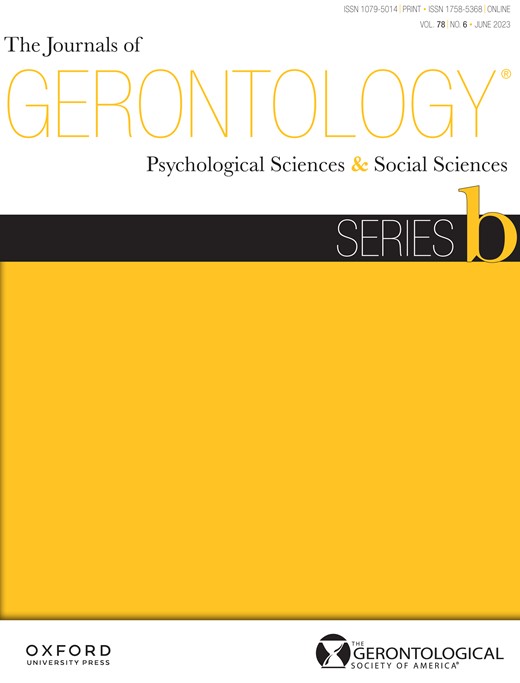-
Views
-
Cite
Cite
Claire M Growney, Tammy English, Age and Cognitive Ability Predict Emotion Regulation Strategy Use, The Journals of Gerontology: Series B, Volume 78, Issue 6, June 2023, Pages 987–997, https://doi.org/10.1093/geronb/gbad021
Close - Share Icon Share
Abstract
This study examines how age and cognitive ability predict use of different emotion regulation strategies in a laboratory task eliciting emotions varying in valence and arousal.
Participants (N = 287) aged 25–85 completed the NIH Toolbox Cognitive Battery and an emotion regulation task in a laboratory setting. They watched a series of emotional clips (disgust, sadness, amusement, and contentment) under instructions to increase positive emotions or decrease negative emotions. After each clip, they rated the extent to which they used emotion regulation strategies that involve different types of engagement with emotional stimuli and disengagement from emotional stimuli.
Older age was predictive of greater use of immersive-engagement strategies (e.g., perspective taking) and less use of disengagement strategies (e.g., distraction). Fluid cognitive ability was positively associated with immersive-engagement strategy use, particularly for high-arousal clips. For older adults, fluid cognitive ability was also associated with using positive-engagement strategies (e.g., positive reappraisal) to a greater extent to regulate negative emotions.
Patterns of emotion regulation strategy use varied by age, even when accounting for differences in reactivity. Findings suggest that older adults may not necessarily prefer strategies that are lower in cognitive demands or that focus on enhancing positivity. Results support the idea that strategy preferences are driven by a combination of characteristics of the regulator and the regulation context. The relevance of cognitive resources likely varies across situations, perhaps being most consequential for deeper processing of high-arousal stimuli and for older adults’ engagement with positive aspects of an otherwise negative situation.





